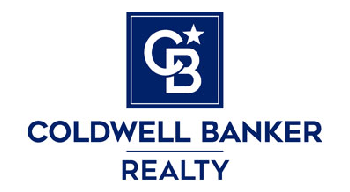
Buying a house can be like starting a relationship, each party is on their best behavior and each party is on the look out for problems and pitfalls. Again and again I see the same 4 things scuttle the negotiations. If you are selling a house keep an eye out for these common deal breakers.
1. The Mortgage Pre-approval
Just because you are pre-approved for a mortgage don’t think that’s a guarantee that you will get one. I know, it sounds completely ludicrous but it’s true.
The best way to look at a pre-approval letter is as an indication of how much house you can purchase. But don’t think that it’s a guarantee that you will get the house. There are certain key things that can change between your application and closing date that will cause you to lose your financing. Here are a few things to be on the look out for;
- Your credit score goes down
- Your income is reduced
- Job loss or change
- You accrue new debts
- The amount of assets you have changes
After you get your pre-approval letter you can decide whether or not to move forward. If you do then the next step is a pile of paperwork and forms. Things like ordering appraisals and credit reports. You’ll also need to verify your income and employment.
Can I afford the mortgage I want?
Once all this is complete your file is sent to a processor who will review the information and the appraisal. He or she will then put together a package for the underwriter.
Now things are starting to get serious. The underwriter is the person who has the final say about whether or not you are an acceptable risk. They will assess your ability to repay the loan. They take into account your credit history and the collateral you’re using to secure the mortgage (the collateral is the home). Then, right before funding the loan, the underwriter will do what’s called a “soft pull” of your credit info to make sure nothing has changed since you first applied.
This is the place where I see many borrowers make a mistake. At this point (from application to closing) do not do anything that might effect your financial picture and undermine your final approval. (See the list above) No “big ticket” shopping on credit. Don’t switch jobs or forget to pay your bills. Don’t co-sign a loan for anyone, or do anything to reduce your income and change the numbers on your application.
Leave all this things until after the final approval!
2. Homeowners Association Documents
 If you buy a home in a managed community you’ll probably find yourself dealing with the Home Owners Association. And often your first interaction will feature a list of laws, bylaws and do’s and don’ts. It can be a daunting task to read everything the HOA sends you but it essential that you do. Depending on the size and complexity of the documentation it may be well worth the cost of hiring a lawyer to help. Buried in the fine print could be information about liens against the property which you should know about before you buy. There may be current litigation against the HOA, the builder, or the developer. You may also uncover “red flags” in the HOA budget.
If you buy a home in a managed community you’ll probably find yourself dealing with the Home Owners Association. And often your first interaction will feature a list of laws, bylaws and do’s and don’ts. It can be a daunting task to read everything the HOA sends you but it essential that you do. Depending on the size and complexity of the documentation it may be well worth the cost of hiring a lawyer to help. Buried in the fine print could be information about liens against the property which you should know about before you buy. There may be current litigation against the HOA, the builder, or the developer. You may also uncover “red flags” in the HOA budget.
These issues may or may not be deal breakers but, it goes without saying that it’s better to be aware of them before you sign on the dotted line.
While the aforementioned HOA problems could potentially derail the deal, it’s better to have it happen upfront rather than when you’re further along in the process, or after you become an owner and are now liable.
The three basic things you should do for every HOA
- Read the minutes of past meetings. You’ll find out about the HOA’s workings, things like the politics, the personalities and how the rules are enforced.
- Carefully check the rules and regulations. Most HOA’s have the same basic regulations but every one is different, now is the time to discover if your HOA has any you cannot live with.
- Review the HOA’s financials. You want to see that the HOA is well managed and can cover their monthly expenses.
3. Home Inspection Problems
Every home, even brand new homes, can have problems, things that need to be addressed before sale. If you don’t appreciate this simple fact then you are setting yourself up for failure. Knowing that there is no perfect, pristine home out there will save you and your buyer a lot of headaches.
Don’t buy that house until you’ve checked these three points
If your goal is to find a home with small, easily fixable problems then you are thinking realistically. My recommendation is that you don’t sweat the small stuff and stay alert for big ticket problems. A broken door nob or rusty hinge is relatively easy to fix but something like water damage or termites is something that should enter into your negotiations.
4. Budgeting Blunders
Every home-buyer knows that they will need a down payment (usually somewhere between 3 and 20 percent of the sale price). There are plenty of tools out there to help you calculate, to the penny, how much you’ll need to put down on any given house. Unfortunately many home buyers fail to appreciate the other costs involved in the process. The largest of these are the closing costs and this number is a little harder to pin down. This number will change based on the type of loan taken out, the amount of the down payment and several other factors that all vary from loan to loan.
 Make sure you, pay close attention to all correspondence regarding the transaction. I’ve seen many rock solid deals fall apart because of a failure to factor in closing costs.
Make sure you, pay close attention to all correspondence regarding the transaction. I’ve seen many rock solid deals fall apart because of a failure to factor in closing costs.
You will receive a form called a Loan Estimate. Check this carefully and make sure that everything you and your lender agreed to is included. Take a good look at the “Calculating Cash to Close” section, which has an estimate of how much it will cost to close the loan. But be aware that this is just an estimate. The final amount may be higher or lower by a factor of up to 5%. If you have any questions or concerns now is the time to speak with the lender. Remember that this is their job and they do this every day.
You won’t see a final figure until you receive the “Closing Disclosure,” which is similar to the estimate, but these figures are final. Again, review the “Cash to Close” figure.
Most real estate deals are successful but in looking over these four issues you can see how important it is to have the guidance of a trained professional. I always encourage my clients to be patient and try to make sure they have a clear idea of what is going to happen. Realistic expectations are a huge plus and in this regard, experience counts.





